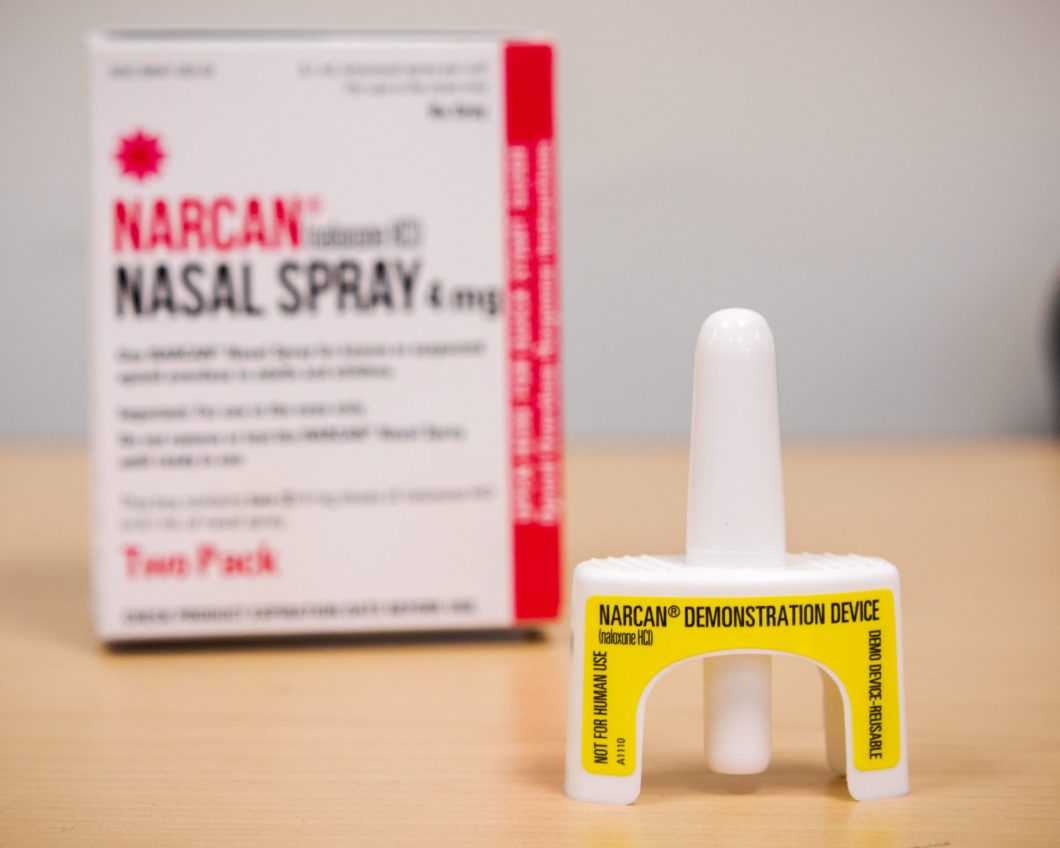Some law enforcement organizations across Indiana have established policies that punish or prohibit the administration of the opioid overdose treatment naloxone, as Filter has reported.
Most recently, Dan Hofmann, the chief of the Lawrence, Indiana city police department, suspended the administration of the lifesaving medication by officers during the coronavirus pandemic. He fears that responders will risk infection when administering intranasal naloxone, also known by the brand name Narcan.
Hofmann’s directive has been dismissed as not evidence-based by the Indiana Department of Homeland Security, which instead encourages naloxone’s continued administration by police officers.
Two individuals with unique insights into the Lawrence directive—the inventor of Narcan and a law enforcement leader in another Indiana city two hours away—also reached out to Filter to share their concerns.
It’s “aggressive and unnecessary,” said Dr. Roger Crystal, CEO of Narcan’s patent holder, Opiant Pharmaceuticals.
Similarly, Police Captain Kevin Hunter of Fort Wayne, Indiana, called the naloxone suspension “surprising,” given that his own officers continue to “deal with overdoses on a daily basis.” He added that “hearing that an agency would stop doing it” flies in the face of his job’s mission: “to help save lives”—in this case, “by administering Narcan.”
In March alone, the month when Indiana’s coronavirus public health emergency was declared, Fort Wayne—a city of around 267,000 residents—saw 63 non-fatal overdoses. In the first three months of the year, 233 overdoses in total did not result in death; 21 did, of which 17 are being investigated.
Hunter said he was reassured that Lawrence emergency medical services, at least, would still be performing overdose reversals. “That made a little bit of difference,” he said. But for Crystal, naloxone suspension during the pandemic is “extreme” and morally problematic.
Cops should administer Narcan in a way designed to prevent the spread of disease in any circumstances, Crystal explained. He said that the “same precautions”—like donning personal protective equipment (PPE), such as gloves and face masks—”should be taken,” pandemic or no pandemic.
And Indiana police are already doing that. “Anytime we’re coming into close contact with someone, we’re putting on our PPE,” said Hunter. Lawrence’s Chief Hofmann justified the directive by claiming that an overdose survivor might “cough or sneeze” on an officer upon revival. But Captain Hunter believes “that’s no different than any other contact with the public.”
Chief Hofmann also did not believe that PPE would be sufficient to stop coronavirus transmission, and cited that as justification for his policy. “Even with PPE, such as a mask, that could potentially be a deadly situation for the officer if that person is COVID-19 positive,” he previously told Filter.
It was reducing the risk of transmission of viruses like HIV and hepatitis C that compelled Dr. Crystal, in part, to innovate the intranasal mode of naloxone administration, which was first approved by the FDA in 2015.
“To avoid needle sticks—that was the initial inspiration to create a nasal spray,” he said. His insight was informed by his experience as an emergency medicine doctor in the United Kingdom. “When I was working in an ER, I would use needles for naloxone. It was a controlled environment. But even then, there’s a risk of a needle stick. A colleague might bump into me.”
Coronavirus is not a blood-borne virus, but the sentiment sticks: “The whole point of the nasal spray is ease and simplicity of use.”
Practicality was important for naloxone’s original uptake by people who use drugs, their networks and witnesses. In the context of reversing overdoses during the pandemic, responders using Narcan can even be “facing away” from the person and can remain at an arms-length distance, said Crystal.
His recommendation is similar to those given by the Indiana’s Department of Homeland Security: “After administration, back away a distance of at least six feet unless appropriate level PPE is available.”
“Fortunately, I’m confident we will overcome COVID-19,” said Crystal. “But unfortunately, we will still have opioid addiction and very high levels of opioid overdose despite all of this—and during COVID as well.”
Fort Wayne police are committed to reversing overdoses during the pandemic, said Hunter. “Our agency is still going out, and we’re still using Narcan on a regular basis. That’s what we’re sworn to do: to protect and serve.”
Photograph of Narcan nasal spray by Governor Tom Wolf via Flickr/Creative Commons




